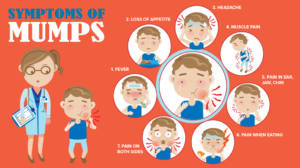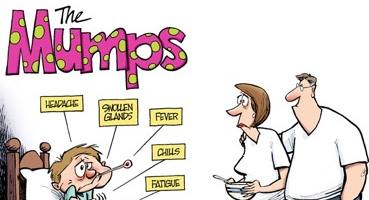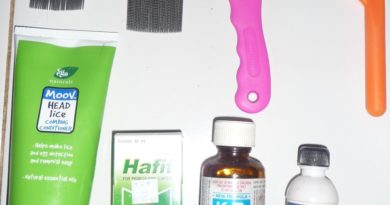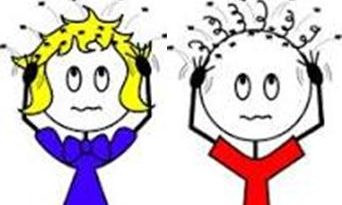Mumps Alert in Primary School
Dear Parents,
What is mumps?
Mumps is an infection caused by a virus called a paramyxovirus.
It can cause swelling of one or both of the parotid glands. The parotid glands (which make saliva) are just in front of and below the ears. The mumps virus may also infect the other salivary glands which are lower, along the jaw.
Mumps can cause a severe headache and sometimes it may be difficult to be sure this is only’ mumps, because the symptoms can be similar to meningitis.
Most people who get a mumps infection will not have any signs that they have the infection, while some will have ‘cold’-like symptoms (often with a bad headache).
Mumps is now uncommon, since children are immunized against it, but before the days of immunization, most people had mumps when they were children (most often between 5 and 9 years).
Signs and symptoms

Less than 50% of children with mumps become unwell.
Usually the first sign is feeling ill, with a fever, loss of appetite and headache.
After 1 or 2 days, there may be swelling of the salivary glands in front of, and just below the ear. These swollen glands are usually tender.
The headache of mumps often becomes more severe a couple of days after the swelling of the parotid glands, with the child being distressed by bright light, not willing to eat, and sometimes vomiting. Headaches due to mumps can occur even when there is no swelling of the parotid glands.
Other ‘glands’ which are often felt below the jaw and below the ear are quite different to the salivary glands. These other glands swell often when children have infections, such as ear infections, they are usually firm and feel round or oval. These are lymph nodes (or glands) which help fight infections.
The swollen salivary glands are higher on the face, soft and usually do not have a clear edge.
How is mumps spread?
The infection is spread by droplets of infected saliva from the mouth and by sneezing and coughing.
Also, tissues used by a person with mumps can transfer the infection to another person if that person handles the used tissue and does not wash his hands after holding it.
How do I protect myself (my kids/my family)?
Mumps vaccine (usually MMR), is the best way to prevent mumps. Other things people can do to prevent mumps and other infections is to wash hands well and often with soap, and to teach children to wash their hands too. Eating utensils should not be shared, and surfaces that are frequently touched (toys, doorknobs, tables, counters, etc) should also be regularly cleaned with soap and water, or with cleaning wipes.
Is there a vaccine to prevent mumps?
Yes. Two doses of mumps-containing vaccine, given as combination measles, mumps, rubella (MMR) vaccine, separated by at least 28 days, are routinely recommended for all children. The first dose is given on or after the first birthday; the second is given at 4 – 6 years of age. MMR is a live, weakened (attenuated) vaccine. Most adults who have not been vaccinated should also receive 1 dose of MMR vaccine, but adults who work in healthcare, a school/university setting, and persons at high risk of exposure to mumps should get 2 doses. Pregnant women and persons with an impaired immune system.
Is the vaccine effective/does it work?
One dose of mumps vaccine will ‘take’ (be effective) in approximately 80% of people vaccinated, but two doses of mumps vaccine will ‘take’ in approximately 90% of people. Therefore, two doses are better at preventing mumps than one dose.
Where can I get the vaccine?
Most family and pediatric doctors keep vaccine in their clinics. If I had mumps as a child, can I get it again/should I get vaccinated? Most people who have mumps will be protected (immune) from getting mumps again. There is a small percent of people though, who could get re infected with mumps and have a milder illness. If mumps was not diagnosed by a physician, then that person is not considered immune and vaccination is recommended.
If I was exposed to someone with mumps, what should I do?
Not everyone who is exposed to someone with mumps will get sick. If a person has been vaccinated with two doses of mumps vaccine, it is very unlikely they will get mumps. However, if a person hasn’t been vaccinated, it is possible they could get sick and they should watch for symptoms of mumps. Additionally, if a person hasn’t been vaccinated, this is a good time to get another dose of mumps vaccine, and to make sure that everyone else in the house where they live is also vaccinated. Mumps vaccine has not been shown to be effective in preventing disease after exposure, but vaccination of exposed susceptible persons will reduce the risk of disease from possible future exposures. If symptoms develop (generally 16-18 days after exposure), the person should not go to school or work for at least 9 days and should contact their medical provider.
What can be done to stop the spread of mumps?
Anyone with mumps should not go back to child care, school or work for 9 days after symptoms begin. People who come in contact with a mumps case should have their immunization status evaluated. Anyone who has not received mumps-containing vaccine (preferably MMR vaccine) should be vaccinated. The physician can help determine if a person needs one or two doses of MMR vaccine. Persons who may have been in contact with a mumps case should be educated on the signs and symptoms of mumps disease and should seek medical attention if any of these symptoms begin.




